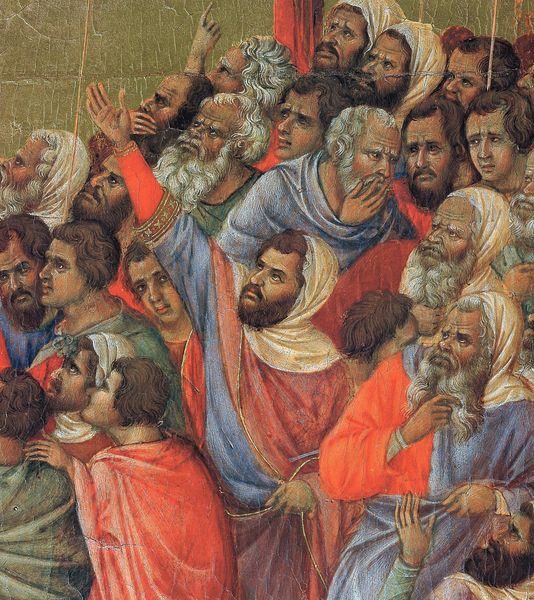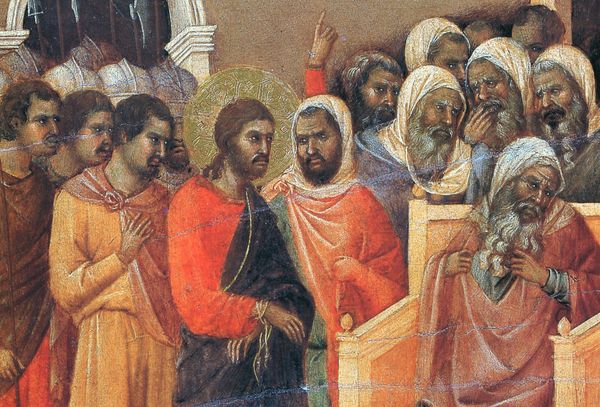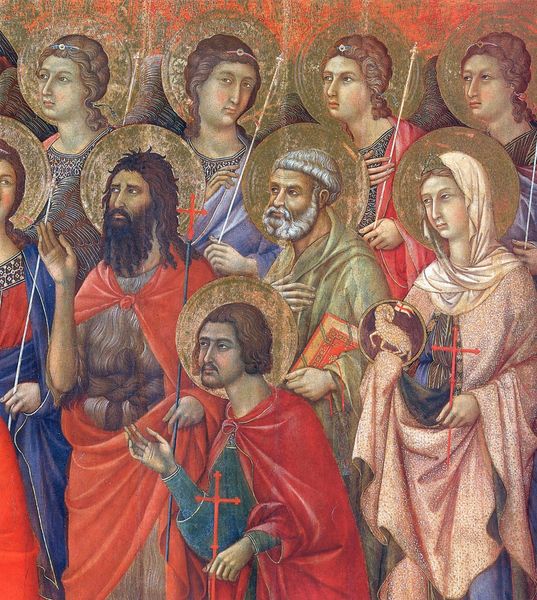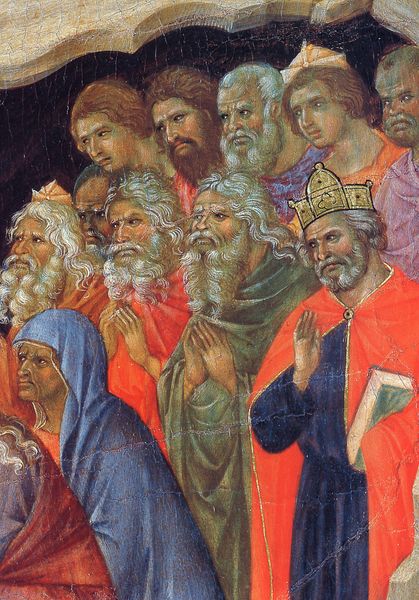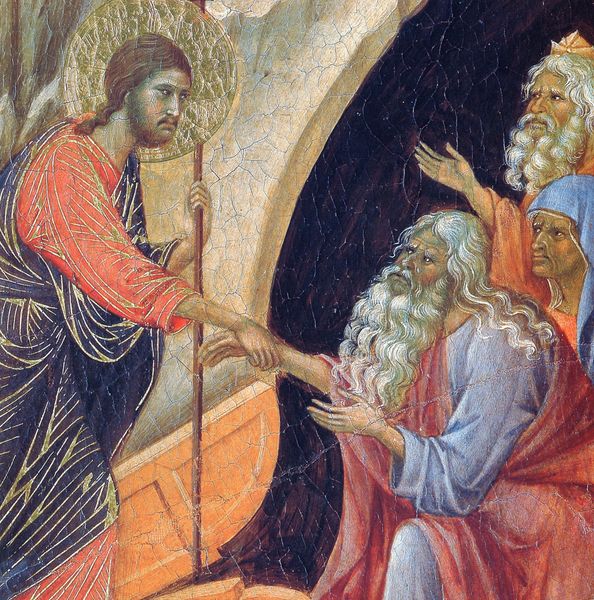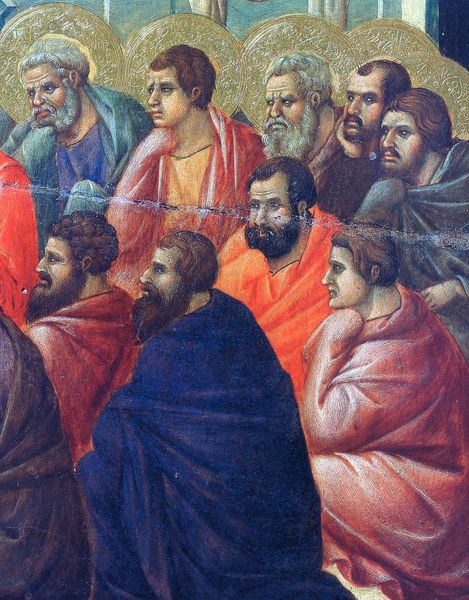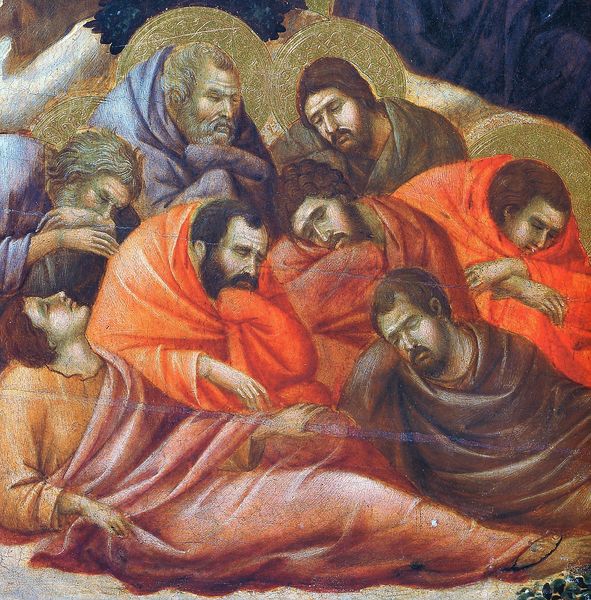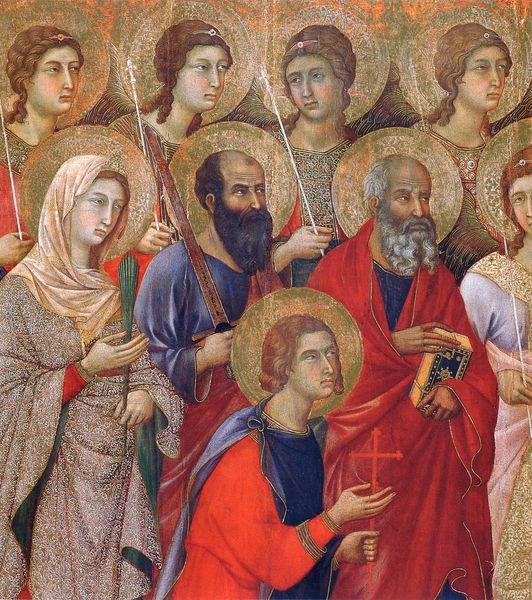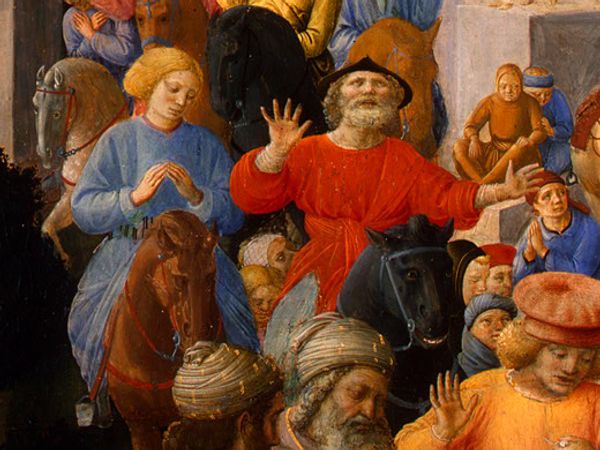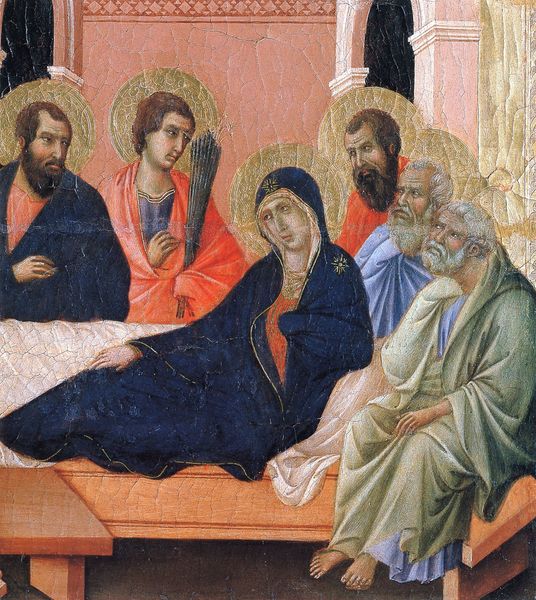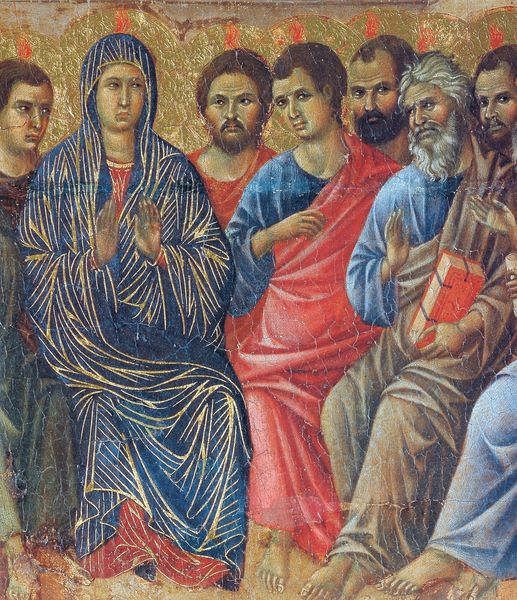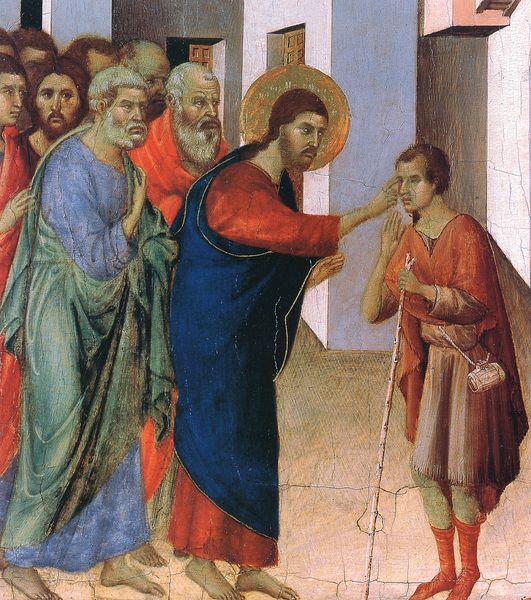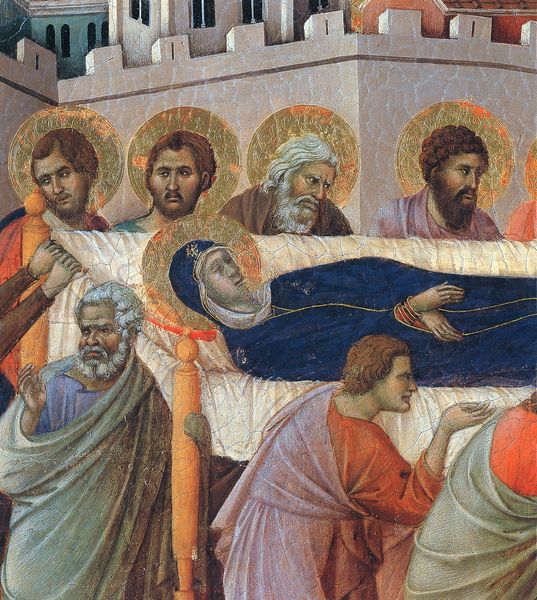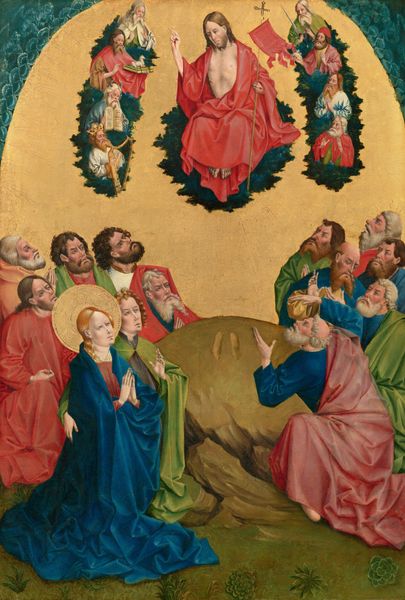
tempera, painting
#
portrait
#
narrative-art
#
tempera
#
painting
#
sienese-school
#
painted
#
figuration
#
oil painting
#
group-portraits
#
painterly
#
christianity
#
history-painting
#
italian-renaissance
#
christ
Copyright: Public domain
Duccio painted this section of the "Entry into Jerusalem" around 1308-1311, using tempera, a traditional process involving pigment mixed with egg yolk, on a wooden panel. Tempera demands precision. Each brushstroke carefully laid, building up layers of color. The gilding, though only partially visible in this fragment, would have been applied meticulously. The artist would have laid gold leaf to create a shimmering effect. But beyond the visual splendor, the materials and methods hint at the economic realities of the time. The sourcing of pigments, the grinding and mixing, and the application required skilled labor. Duccio likely had assistants, dividing the work based on expertise. The gold itself speaks to wealth and patronage, a reminder that art was often a product of a complex social hierarchy. Considering the artwork from a material perspective allows us to move beyond seeing it as simply a religious scene. We begin to understand it as a product of skilled labor, economic exchange, and the social context in which it was created.
Comments
No comments
Be the first to comment and join the conversation on the ultimate creative platform.
